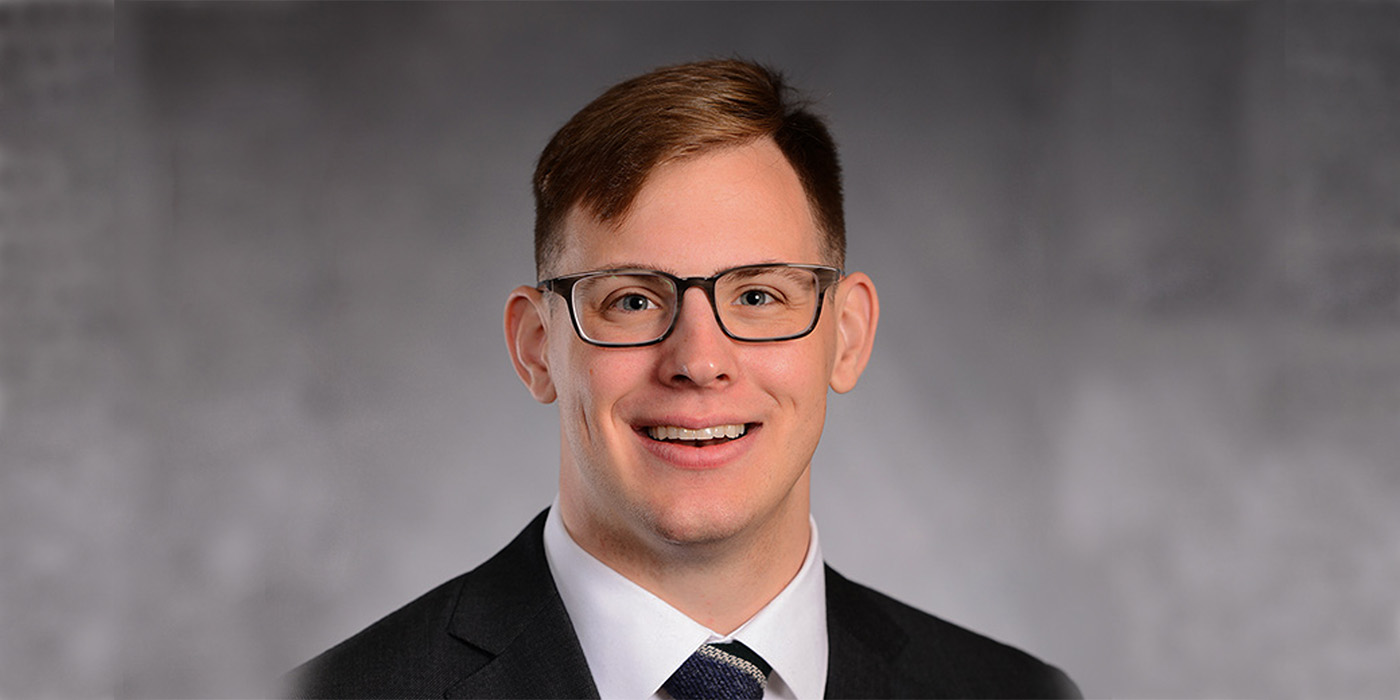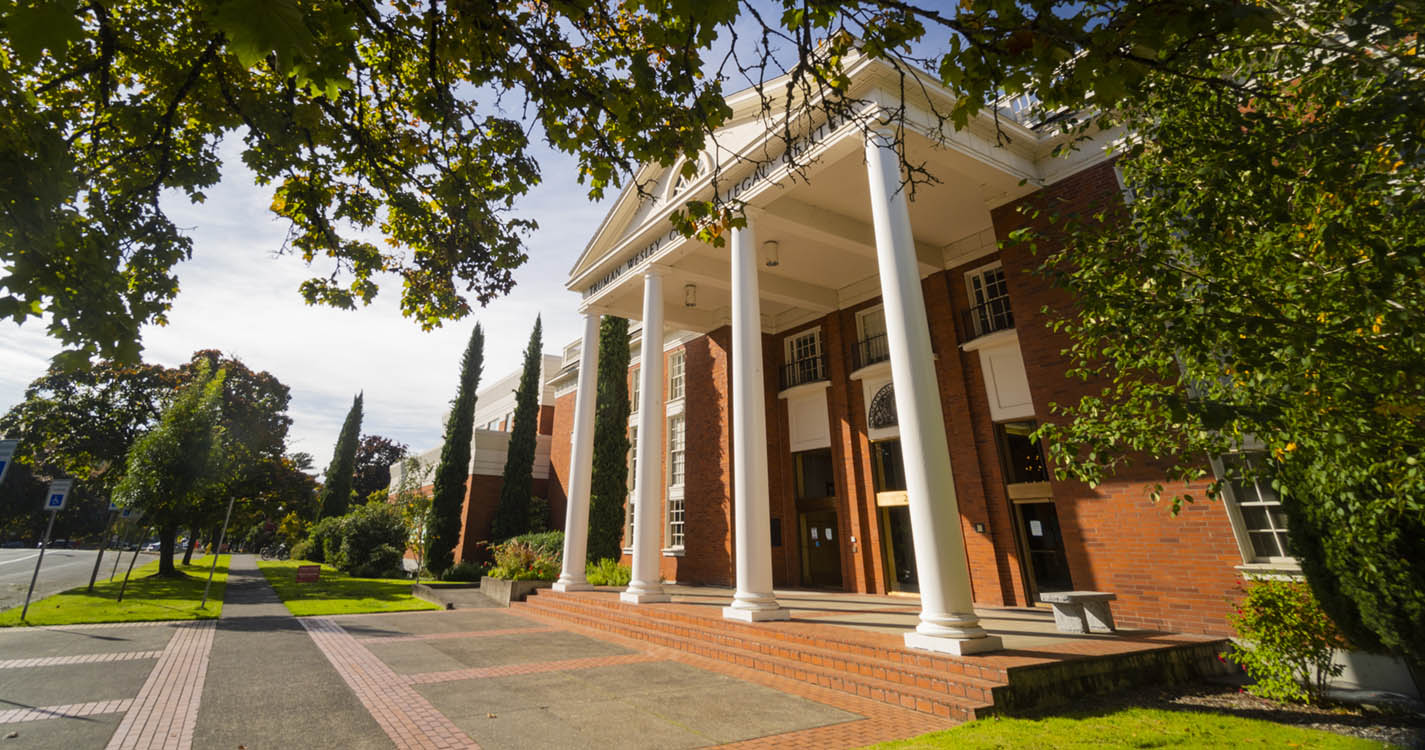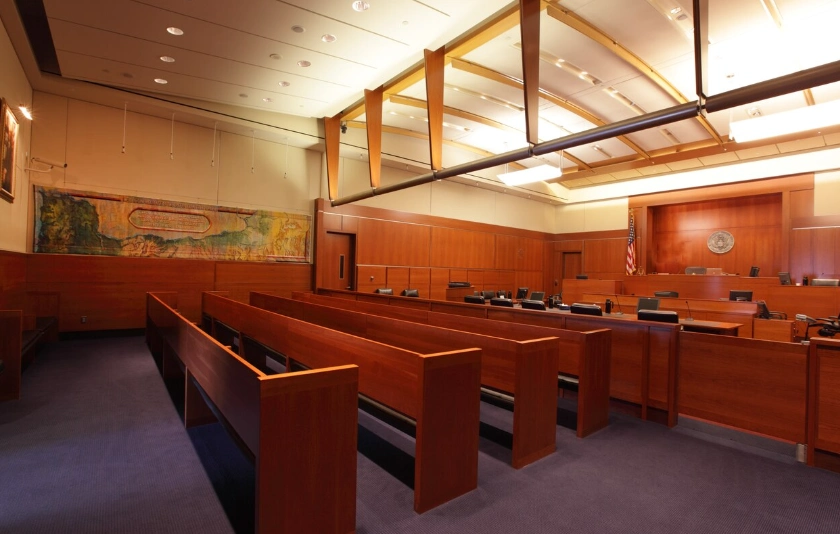Balance has proven key to Henry Harder ’20, JD/MBA’23’s success in his ambitious educational journey at Willamette University. As an undergraduate student, he decided to take part in Law School Bound, a direct admission pathway that gave him early admission to Willamette Law.
Law School Bound offers students a 3+3 or 4+3 pathway to law school, meaning students can choose to graduate with a bachelor’s degree and JD one year early or on time. If students go the 3+3 route, they graduate with an extra year of earning power. If they choose the 4+3 program, they can receive a durable scholarship for each of their years in law school. Earlier guidance from the Law Admissions office is an additional benefit.
Harder chose the 3+3 option, studying politics for his bachelor’s degree and joining Willamette Law during his last undergraduate year. As a 1L, he quickly found he had a strong grasp for legal analysis. Formerly a B-student, he began achieving more success than he ever had during his first semester of law school.
“The way law is structured, you have to advocate for a position and have strong reasoning,” Harder explains. “You’re not just memorizing history facts. You’re applying law to a position, and that’s something I have a strong affinity for.”
Midway through his second semester in the College of Law, the COVID-19 pandemic hit, and a close professor, Ed Harri, passed away. Harder felt lost. To diversify his skillset, and perhaps occupy his mind, he decided to enroll in Willamette’s JD/MBA dual-degree program.
There, he was exposed to new skills and a practical, economy-focused way of thinking. He completed a year of both law school and business school and a summer internship with a local law firm, where he worked in civil litigation. The next summer, in 2021, he wanted to try something different.
Gaining experience with the JAG Corps
Harder applied for the US Army’s summer internship program with the Judge Advocate General’s Corps. The JAG Corps is made up of attorneys who are uniformed officers for different branches of the military. They practice law and represent soldiers in military courts, provide operational support and complete legal services for members of the armed forces.
Harder spent the summer at Fort Sill in Oklahoma, which he says was an excellent experience.
“I had exposure to different types of law, helped with trials and housing issues, completed legal analysis and completed many different projects,” he says. “The individuals I worked with and for were just exceptional. They helped me when I needed it and helped me gain leadership skills. I even took part in the physical drills, runs and walking in formation. I was treated as part of a unit and fell in love with it.”
When he came back to school in the fall, he was determined to return to the JAG Corps. Focusing on being the best attorney he could be, Harder worked to gain connections in school, joined more student organizations and competed in the student appellate competition, where he won. Wanting to represent oral advocacy on campus, he was elected president of Moot Court Board.
“I wanted to have as many tools as I could going into my career,” he explains.
Harder was accepted to and completed a second summer internship with the JAG Corps in Washington at Joint Base Lewis-McChord. He says the team-based learning experience was everything he got in Oklahoma and more. He credits a mentor there with pushing him to develop skills, learn more about the Army and think about applying to the JAG Corps after law school.
Harder is finishing up his last year at Willamette Law and the MBA school and already has an offer to join the JAG Corps this summer. Despite his busy schedule that will result in three degrees earned over the last seven years, he says balance has kept him sane — including giving himself the freedom to have free time.
“The best things in life come from balance between two extremes,” he says. “Overworking and burning out won’t help me in the long run. Balance has given me free time and let me succeed.”




